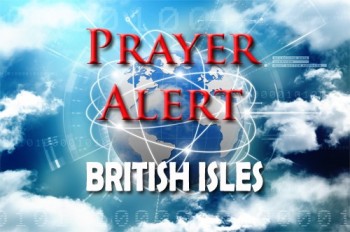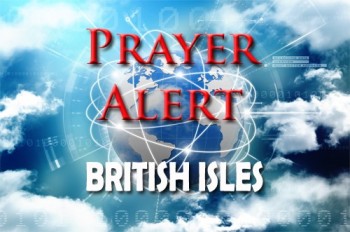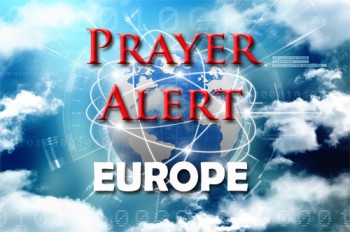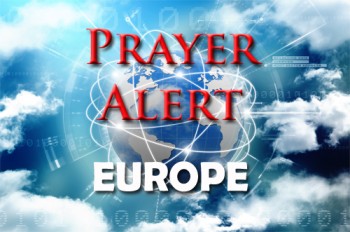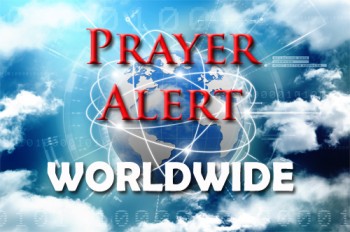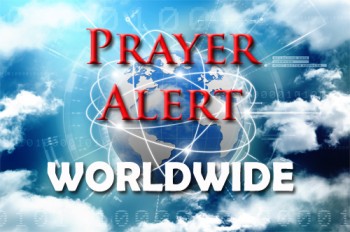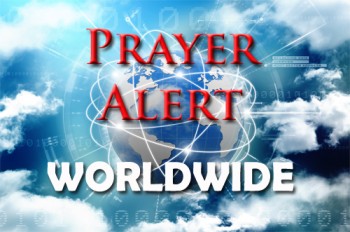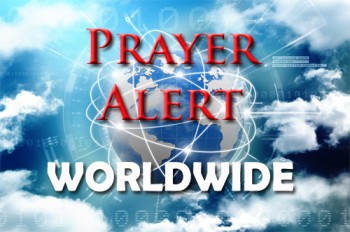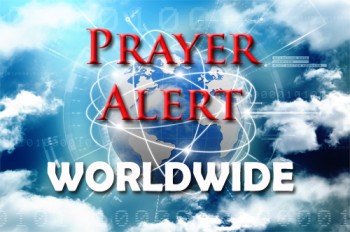
David Fletcher
David Fletcher is Prayer Alert’s Editor.
He is part of a voluntary team who research, proof-read and publish Prayer Alert each week.
If you would like to make a donation towards our running costs, please click here.
Favouring one food over everything else for a length of time can lead to health issues. A survey of 2,000 parents found that nearly half believe their child is a fussy eater. Autism-related sensory aversions are common as the person insists on ‘sameness’ and consistently eats the same food. This week a British teenager was left blind and partially deaf after living on a diet of chips, sausages and crisps because he did not like the ‘texture’ of fruit, vegetables and other foods. He developed a condition normally only seen in under-developed countries. Pray for dangerous eating to be recognised early by friends and family so that an NHS referral can be implemented. Pray for more feeding therapists to be trained so that families who identify unhealthy eating habits can access help, learn what is contributing to the condition, and develop overcoming strategies.
HOPE Together don’t do politics, but they do pray- and prayer for our country is a priority right now. In particular, they are looking ahead to 2020 and what many believe will be an unprecedented year of harvest from the gospel seeds sown over the past decade and more. Many denominations and ministries across the UK are also sensing this and preparing for opportunities to invite people to respond to Jesus’ offer of life in all its fullness. With this in mind HOPE together are launching 2020 as a year of covering prayer for all that is done in the year - personal witness; church outreach plans in villages, towns and cities; stadium events - evangelism in all its many forms. They are inviting believers to join them in praying for 20 minutes at 20:20hrs (8.20pm) on the 20th of each month throughout 2020. There will be twelve suggested themes to focus on - asking God to heal our land.
A German intercessor writes, ‘God has encouraged us greatly through answers to prayer and has richly blessed prayer conferences. However, the challenging developments in our land in many areas of politics and society (polarisation and hate, the growing influence of gender-mainstreaming, anti-Semitism, declining church attendance, etc), and the rapid turning away from Christian values, cause us to sit up and take notice, and to personally make time to be still before God.’ Throughout September German prayer groups will seek God across the land, believing that ‘if we seek Him with all of our hearts, we will find Him’ (Jeremiah 29:13). Let us join our brothers and sisters and pray for the welfare of German politics and society. God is shaking the nations (Hebrews 12:26,27), so we must not consider everything that is now happening in Germany and across Europe as ‘a bad thing’. There is much for which we can be thankful for in these times.
Fianna Fáil leader Micheál Martin wants the Government to admit that a no-deal Brexit is now the expected outcome, and to be transparent with the Irish public about its plans. He told RTÉ radio’s Today with Seán O’Rourke show, ‘The issue is too important to be left until 31 October. The public needs to know now what plans are in place, what kind of checks will be required in the event of a no-deal Brexit.’ Mr Martin said he was ‘deeply concerned’ about the state of readiness for a no-deal Brexit, especially for ports where he feared there would be disruption to the transport of goods, both outward and inward. He added, ‘Politics is not about playing games in an arena, it is about people’s lives.’
As Hurricane Dorian battered the US eastern coast on 5 September, the Bahamas reported 'total devastation' in its wake, with 'apocalyptic' scenes after being hit by one of the most powerful Atlantic storms ever recorded. The death toll is expected to be high. Pray for all who are organising food and shelter relief to deal with an unfolding humanitarian crisis. Ask God to release abundant quantities of food, water, shelter, clothing, physical help, healing and comfort to people whose lives have been torn apart. Pray for the damaged hospitals to be repaired, and for the elderly and vulnerable to be found swiftly by rescuers. Pray for the many bereaved, and those whose family and friends are missing. Pray for God to anoint agencies bringing repair to the infrastructure, and remember all those in North and South Carolina anxiously watching the oncoming hurricane.
On 1 September Hezbollah fired several precision-guided missiles from Lebanon towards an army base on Israel’s northern border, destroying an IDF armoured vehicle in the attack. Thankfully, there were no soldiers inside it at the time, but there had been just 30 minutes before the attack, leading Israel’s Army Radio to broadcast that Israel and Hezbollah were ‘30 minutes away from war’. Israel led Hezbollah to believe that there were casualties by staging a well-planned medical evacuation, prompting the terror group to hold fire and giving Israel tactical advantage to strike back with artillery and helicopter fire, sending over 100 shells into Hezbollah positions in Lebanon. Many lives are at risk due to escalating tensions between Israel and Iran’s proxy, Hezbollah.
Burkina Faso is quickly going from a peaceful farming nation to an extremist breeding ground. Attacks by IS and al-Qaeda militants have quadrupled since 2017. Over 70,000 people have fled their homes this year. Recently, gunmen in the north surrounded a group of people and executed four Christians who they found wearing crosses. Previously Christians, Muslims, religious people, and those with no faith lived together peacefully, but now violence is directed specifically at Christians, looking for religious symbols and attacking churches. The militants are really trying to bring division between the Muslims and Christians with a ‘divide and conquer’ mentality. This extremism can be traced back to the fall of Libya, when militants trickled into neighbouring countries like Burkina Faso, bringing their weapons and violence with them. While the rest of the world was focused on surging extremist movements in east and central Africa, the seeds of militant Islam in West Africa were quietly being sown.
Bible translator Angus Abraham Fung, working with the Aghem Bible translation project in Cameroon, was among seven people said to have been killed in an overnight attack. His wife’s arm was cut off, according to a ministry source. The attack was carried out by suspected Fulani herdsmen in Cameroon’s violence-ridden Anglophone region where separatists are fighting for independence. Fung, in his sixties, had worked for years on a New Testament translation in the Aghem language. Although it was completed in 2016 and over 3,000 copies have been published, distribution has not happened because of the war in the region. Pray for the swift recovery of his wife and for God’s comfort to all who mourn the death of the seven men. Pray also for the success of all literacy efforts to bring the word of God to people whose language has never been written down before, both in Cameroon and across the nations.
Cyril Ramaphosa won the May elections on a reformist ticket against ANC’s corrupt old guard. Now he is dealing with a corruption row over land reform in the countryside and xenophobia in the towns. When he took over he pledged to bring ‘ethics’ into politics. But for much of his short tenure, Ramaphosa has fought a campaign addressing financial scandals. His first move as president was spearheading controversial reforms which would advance land transfers to the black majority. But many black people don't yet know how to farm,so they need the white commercial farmers to train and help them. Recently, cities have experienced violent mobs looting shops and torching vehicles owned by foreign nationals, in a wave of xenophobic attacks. Angry residents are calling on the government to deport undocumented migrants. Nigeria sent an envoy to South Africa to express her displeasure over the treatment of her citizens, and Ethiopia's embassy advised its citizens to close their businesses. See also
Over 200 people including women and children were abducted and a church mission hospital and shops were looted when Islamist extremists raided the town of Boga, in this majority-Christian country. Bishop William Bahemuka said the Muslim ADF militia had attacked the town in the early hours. During the three-hour assault, there are conflicting reports about how much the army resisted the militants, as no casualties were reported. People are terrified. Families are traumatised and grieving over their abducted loved ones. The ADF has never been active in Boga, so people are confused and can’t understand the current situation. Bishop Bahemuka said, ‘I appeal to people of good will everywhere to lobby their home governments to put pressure on our government to stabilise the security situation. We also appeal for a massive outpouring of sustained prayer from Christians everywhere.’

